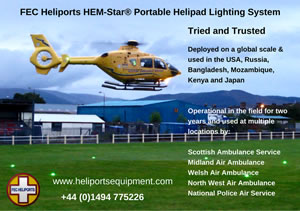ADi News2016-03-21 09:53:35
Kelvin Hughes to supply 60+ SharpEyeâ„¢ radars for UK Royal Navy and Royal Fleet Auxiliary
Kelvin Hughes has announced that its SharpEyeâ„¢ radars are to be fitted to more than 60 Royal Navy (RN) and Royal Fleet Auxiliary (RFA) ships, submarines and shore facilities.
Working in association with Lockheed Martin Integrated Systems UK who have signed a £44 million contract with the Ministry of Defence (MOD), Kelvin Hughes will be supplying SharpEyeâ„¢ systems for the RN's Type 23 frigates, Hunt and Sandown class Mine Counter Measure Vessels, RFA support vessels and fast patrol boats as well as the Astute, Trafalgar and Vanguard class submarines.
Five shore facilities will also benefit from SharpEyeâ„¢ technology, including HMS Collingwood in Hampshire, HMS Raleigh in Cornwall, and the Land Based Test Site at Portsdown Technology Park in Hampshire. The contract with Lockheed Martin also includes options for the introduction of navigation radar systems for future Royal Navy platforms such as the Queen Elizabeth carriers, the Type 26 Global Combat Ship and Successor submarines.
SharpEyeâ„¢ is available in both I (X) and E/F (S) frequency bands. These share a high degree of component commonality due to their similar modular design and system architecture. Kelvin Hughes' ability to offer variants of SharpEyeâ„¢ across both frequency bands to a similar design offers MOD the opportunity to realise significant savings in training, documentation and through life support.
The SharpEyeâ„¢ solid-state radar transceiver transmits a low power, patented pulse sequence incorporating pulse compression that enables superior range discrimination across all range scales. This means that multiple operators can have access to an optimum picture at both long and short ranges simultaneously.
Doppler processing of radar returns provides coherent information concerning a target's velocity and improves the probability of detection of small objects with a low RCS (Radar Cross Section). Through a series of electronic filters, SharpEyeâ„¢ is able to distinguish between targets of interest and clutter whilst customisable waveforms can be configured for specific threats and to enhance the detection of specific targets of interest such as UAVs and helicopters.
The radar's low power output also reduces the probability of detection by enemy ESM equipment.
Kelvin Hughes has announced that its SharpEyeâ„¢ radars are to be fitted to more than 60 Royal Navy (RN) and Royal Fleet Auxiliary (RFA) ships, submarines and shore facilities.
Working in association with Lockheed Martin Integrated Systems UK who have signed a £44 million contract with the Ministry of Defence (MOD), Kelvin Hughes will be supplying SharpEyeâ„¢ systems for the RN's Type 23 frigates, Hunt and Sandown class Mine Counter Measure Vessels, RFA support vessels and fast patrol boats as well as the Astute, Trafalgar and Vanguard class submarines.
Five shore facilities will also benefit from SharpEyeâ„¢ technology, including HMS Collingwood in Hampshire, HMS Raleigh in Cornwall, and the Land Based Test Site at Portsdown Technology Park in Hampshire. The contract with Lockheed Martin also includes options for the introduction of navigation radar systems for future Royal Navy platforms such as the Queen Elizabeth carriers, the Type 26 Global Combat Ship and Successor submarines.
SharpEyeâ„¢ is available in both I (X) and E/F (S) frequency bands. These share a high degree of component commonality due to their similar modular design and system architecture. Kelvin Hughes' ability to offer variants of SharpEyeâ„¢ across both frequency bands to a similar design offers MOD the opportunity to realise significant savings in training, documentation and through life support.
The SharpEyeâ„¢ solid-state radar transceiver transmits a low power, patented pulse sequence incorporating pulse compression that enables superior range discrimination across all range scales. This means that multiple operators can have access to an optimum picture at both long and short ranges simultaneously.
Doppler processing of radar returns provides coherent information concerning a target's velocity and improves the probability of detection of small objects with a low RCS (Radar Cross Section). Through a series of electronic filters, SharpEyeâ„¢ is able to distinguish between targets of interest and clutter whilst customisable waveforms can be configured for specific threats and to enhance the detection of specific targets of interest such as UAVs and helicopters.
The radar's low power output also reduces the probability of detection by enemy ESM equipment.
For more information contact:
